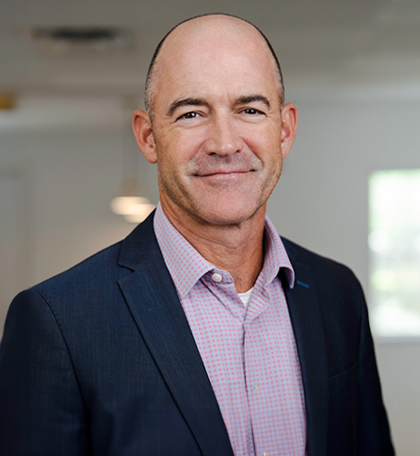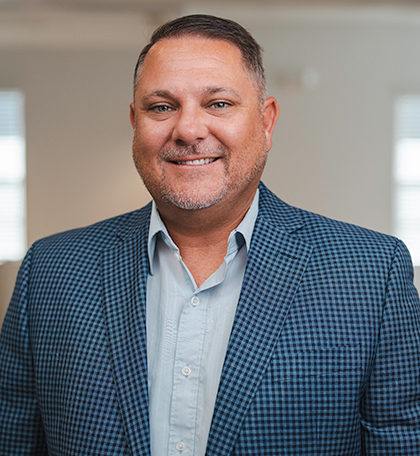TRANSCRIPT:
Welcome back to Financial Foundations, brought to you by Base Wealth Management, where we are the foundation to your financial plan. I’m your host, Dustin Taylor. I’m your co-host, Alex Wolfe, Certified Financial Planner. And today we have with us a member of the Base Wealth team who is a CPA who works typically with small business clients, and that’s Josh Pisa. Thank you for joining us, Josh. Thanks, Dustin. Welcome, Josh. Good to be here. Yeah, thanks for joining us. So the first thing that we want to talk about is how you got into the industry and why you like working with small businesses. Yeah, so I went to school for accounting, loved my tax classes, and just starting to learn about how to save people money, how businesses work, understanding why businesses do certain things financially, and the fact that there are options and opportunities and strategies that us as professionals can utilize to save people significant amounts of money and help point them in a right direction to better their company and then ultimately, you know, provide something valuable to them as the owners at the end of the day. So, really, you know, looking at the whole picture of somebody starting a business, running a business efficiently, making money, making profits, investing, and then, you know, what they end up doing at the end of the day to help them meet their goals. So, I really like that idea of working and making an impact with people, you know, to get help them reach their goals.
What are some of the most common mistakes that people make with their small business when it comes to taxes? Organization is a huge one for small businesses or startup businesses, just not being organized, not tracking money, what they’re doing, not having good books and records. Like expenses and things too? Expenses, yeah, like, you know, a lot of times you’ll see businesses and small business owners, they’ll use a personal credit card, a personal debit card, they’ll just commingle funds. They’ll not keep any books and records at the end of the day. They’ll, you know, put a bunch of receipts in a box or in a folder. They won’t look at their sort of, you know, monthly – they don’t even have monthly financial statements in a lot of situations, so they don’t know maybe what’s going on really in terms of profit and expenses throughout the month. Rather, they simply look at a bank account balance to help make decisions, and obviously that’s really not an effective approach to running a business. So, choice of entity, you know, so in terms of how they elect to be treated for tax purposes can make a huge difference.
Do you want to talk about that? Yeah, yeah. How they’re set up or common practices and what maybe you recommend for certain types of businesses? Yeah, so, you know, a lot of it’s dependent on the phase of the business that the person is in, how big the business is, what types of services they’re providing, whether or not maybe they’re even in a service business a manufacturing type of business. So it’s really going to be dependent on the particular situation, but generally speaking, you know, what you’ll, what we look for when we’re doing an analysis is can we optimize them in any way or, or provide them any other tax savings or, or flexibility in terms of meeting certain needs of the business, right?
So, you know, as an example, we recently had a client who it was a single owner business, I think she was a nutritionist, came in and was working with a CPA, wasn’t really doing any tax planning, had a really nice business going, was, was earning, you know, six figures in profit after expenses and was running this all through schedule C as a sole proprietor. So, you know, from a tax perspective, the obvious option is to look at doing an S, you know, an S corporation for, for this individual. And then the benefit there is that any of the excess profit of the business is not subject to self-employment taxes. So in her case there was a considerable tax savings in, you know, in terms of the self-employment taxes. You know, now there are definitely some nuances with going down that road that people should understand in terms of, you know, you still do need to pay yourself a reasonable compensation. You can’t simply have it all be deemed, you know, a shareholder distribution not subject to self-employment taxes. So, that was a big one and an option for her that made a lot of sense. A
nd, you know, there are situations out there, too, where, you know, it’s not the be-all-end-all that everybody should be doing this, right? It really needs to be looked at and then considered and talked through, like, the type of business, what they’re doing. You know, like, for an example, generally real estate investors and things like that, it doesn’t make sense to set up as an S-corp. You know, there’d be other options for that. So, yeah, just that’s, you know, a really good one for folks who are running a small business and maybe not working with an accountant or somebody who’s actually doing any sort of planning. And then, for her particularly, we were also able to layer in a simple IRA account on top of that. So, you know, part of what we deemed as a reasonable compensation that would then be picked up as, you know, W-2 income could now be reduced down by the contributions that she could make into her simple IRA. So, it was really a way, you know, to layer in a couple levels of tax savings in terms of the savings from self-employment taxes plus the savings from, you know, the deferral of the simple IRA contribution. Yeah, I think that’s interesting and glad you mentioned it. One of the big missing pieces when I work with someone who’s self-employed or owns a small business is the retirement planning piece. And a lot of them don’t even have any type of retirement plan set up for themselves or their employees.
So, what do you think about how you handle that situation? Yeah, I love it. I mean, that’s definitely a go-to for us because that, you know, brings us to that piece where, you know, we have, you know, tax strategy, tax savings, but now we can layer in the retirement planning piece. And it really does tie together the long-term planning and goals function too, right, because, you know, you can eliminate your self-employment taxes all day long, but at the end of the day what you’re doing is now you’re not paying into Social Security as much. So if you’re not effectively still saving that and investing that excess tax savings, you’re really kind of doing yourself a disadvantage, especially if you’re just spending it. So, you know, tying it together with a retirement plan and helping them, you know, understand the long-term benefits of saving this money is the, you know, is really the ideal on that piece. Yeah. I’m going to skip forward a minute here, Dustin, bear with me. Talking about retirement planning and linking everything together, what about succession planning where you’ve got someone who, regardless of what type of retirement plan they implemented or didn’t implement, how do you work with clients who are looking to sell the business, whether it be to a family member, an employee, or someone they don’t know? Yeah, a few different things.
Right, so I think that kind of goes back to the, like, let’s make sure we’re running an organized business, right, where we have accurate books and records and, you know, what you say on the financial statements is actually happening, right, and you’re not just putting journal entries in for things. So getting them organized where, you know, bank accounts are reconciled to your books, you have clean financial statements. So obviously that’s gonna be one of the first things that like a serious qualified buyer is gonna look at, right, is tying out your numbers and stuff, you know, reviewing tax returns if they’re not a prior client to make sure they’re accurate, you know, in terms of the, you know, retirement planning and that type of thing, conversation and, you know, that’s more of a, I think an added benefit to say like, you know, I’m running a business that’s offering good benefits and, you know, maybe that helps with employee retention and looking at most CPAs like it, or like if you go to H&R Block, stuff like that, they’re concerned with taxes for this year, but for you, you’re also a financial advisor. So do you also look at lifetime taxes whenever it comes to the small businesses?
Is that still relevant? Yeah. I mean, so it’s just, it’s, there are options that we look at and, and you know, there are probably more specific meetings that we have with clients that cover and touch on certain strategies that are long-term planning focused, right? So obviously the retirement planning, you know, conversation is, is one of those, you know, Roth conversions can tie into to that conversation too, if folks have, you know, large pre-tax IRA accounts and depending on their level and trend of income, like, you know, we kind of want to understand like that, those trends to see, you know, if, if they’re coming, you know, if they’re just on a straight upshot of, of profit and tax taxation, you know, you start to not become as concerned with the Roth conversion piece, cause maybe they’re, they start to become, you know, in a higher bracket now.
And, and, you know, in the long run, maybe they would, you know, after they sell the business and that kind of thing, maybe they come back down to a lower bracket. So maybe it doesn’t quite make sense. But yes, those are all things that, that we’re definitely looking at long-term. And for someone who’s a sole proprietor and they’re trying to make the decision on whether they should be an S-corp or not. One thing that I saw come up was the fact that it could affect social security because you’re, you’re getting a lower salary. Is that true? Is that how that works? If you’re getting a lower salary because of your S-corp, is that going to affect your social security in the long run?
Yeah, for sure. So that’s what, you know, we were kind of saying, like, where if we, if we do go down the route where, you know, within a schedule C, you know, in the example that we were talking about with, with the lady prior, her full profit was being, you know, paid in basically up to the social security max, which is like 160,000 a year into social security. So has she, does she stay, if she stays on that track, she’s going to have a larger social security benefit because she’s you know, every dollar of profit that she makes is being paid in towards that, right? So, with the S-Corp strategy layering in, maybe we pay her a $40,000 salary instead and the other $70,000 is now not being paid in towards her Social Security benefits. So, that certainly will work towards reducing her credits in the long run and ultimately the amount of her benefit. But what she needs to understand then is there’s some amount of that $70,000 that now is the shareholder distribution that should be going towards funding retirement and long-term planning, right?
Yeah. So, you know, if you figure you pay in 6% or 7% towards Social Security on your, on those taxes, you want to kind of divert that amount at least, you know, into long-term, you know, into the long-term bucket. Do you find that, that in any sort of analyzation that, that if they did put that money in now, then by the time that they were drawing Social Security, that it would be more given, you know, the, average market. It probably depends what rates of return you’re using, but certainly if you use the more recent rates of return, you would definitely outpace what you’re going to get from Social Security on that piece, for sure.
And then another question too, for that same person, I know that you handle the tax returns for the business owner. Whenever you do that, you use a software like a list of plan or something to kind of find- Bracket management, yeah. So what are maybe some common things that people would miss that a list of plan catches? One of the big ones too, I guess when you’re looking at Roth conversions and depending on the age of the person can be, and one of the sweet spots for Roth conversions is folks in their 60s and maybe they’re stopped working, but they’re not yet at RMD age, right? And they could be potentially taking Social Security already, paying Medicare. So obviously the big one is if you do a Roth conversion, depending on the dollar amount of the conversion, and you look at that in conjunction with the Medicare rates that you pay based on your level of income.
So, if you do a large conversion with somebody and they’re paying Medicare and their AGI goes up considerably, they could be bumped up, you know, one, two, or three brackets in terms of their Medicare payments and then that can be substantial. And there’s a look back period too, isn’t there? Well, it’s on like a rolling two-year, you know, kind of period, right? So, it’s like, you know, whatever the most recent return that’s filed is will drive your Medicare the next year, calendar year. So, it takes a couple of years to catch up, but yeah, that’ll be one that a holistic plan will drill down on and look at and help you kind of figure out and optimize, like, okay, let’s make sure I’m not bumping up into that bracket too.
The other one can be net investment income tax, which is a surtax of 3.8%, so depending on how much we’re converting and other sources of income and the amounts and things like that, we can bump up into paying, you know, that extra 3.8% net investment income tax, which would layer on top of the ordinary income tax. So ideally, we’d want to avoid that piece of it as well. So the holistic plan is great with graphs and charts and increments and things like that, that we can play with that will help us stay out of those buckets. I’ve been wanting to do a video, and you can edit this out if you don’t want to keep that, where you’re using holistic plan for mostly like retirees in how to create your own tax bracket. From an income strategy, like how much to take out of an IRA versus a Roth IRA versus a brokerage, and being able to maintain like a super low tax bracket, but also being able to take in, say, almost $100,000, but most of it is tax free. So you can do that if you leverage the capital gain buckets, right? Yeah. So if you’re a married couple, there’s a 0% capital gain bucket, which goes up to like maybe $90,000, right?
So, if you can keep your AGI under $90,000 and the bulk of its capital gain income, then, you know, that effectively is taxed at 0%, but, you know, that’s a little bit tricky. You know, a lot of retired people have pensions and, you know, the high 5% money market rates that are being paid now, you know, there’s quite a bit of ordinary income that generally retired folks will have that’ll, you know, they end up kicking you out of that, so. Right. And along this track of not necessarily like small business owners or self-employed people, but with the standard deduction being as high as it is, and you maybe not necessarily get into filing a lot of personal tax returns, but it’s very hard to itemize. Is there any, anything there behind those layers that people are missing or you think that still people are just taking the standard deduction? Yeah. I mean, that’s the default for most just, you know, people who are just working a job, so to speak. You know, where you’ll see it is, you know, you have a decent-sized mortgage and you’re paying mortgage interest, real estate taxes. You know, we see it quite a bit, you know, in the area that we live in. You know, the mortgages generally are a little higher. The property taxes are higher. Health care costs. Health care is a little tricky one unless you’re paying considerable amounts to medical sources.
There’s hurdles and things like that that end up being pretty tough to get over for people, so it’s basically going to be really your real estate taxes, your mortgage interest and charitable giving. So you know, there’s all sorts of strategies with charitable giving, you know, depending on what the person is into. You know, especially if they’re, you know, if they’re IRA, RMD age, you know, you can look at QCDs, you can look at different things. You can potentially look at staggering deductions like doubling up. Bunching deductions. Bunching, yep, exactly, deductions, property taxes, things like that into a year. You can do like two years worth in one year and then skip a year. Exactly. Right. Yeah. So, there’s stuff like that. Yeah, we’ve done that before. Yep. Yep. So, that’s always a good one to look at just depending on the person and the situation. Working with small business owners primarily, I know you’re not like in the healthcare space, but do you find a lot of them have healthcare plans where they’re able to contribute to HSAs and take, you know, advantage of the tax deferred nature of those?
Not so much, but that is a great benefit, great option that we talk to people about. You know, if they have a growing business and they’re looking to add in, you know, features and benefits to their, you know, their benefits plans, that’s always a great one that we can talk to people about and then, you know, the business owners love it to the extent they can take advantage of it and it’s great for the employees because it’s kind of this like, you know, triple tax deferred account, so to speak, you know, where you can get money in there, let it go tax-free and then use it for medical. In 2026, we have the tax cuts and Job Act set to sunset if it doesn’t get extended or, you know, new legislation passed, how will this affect either, you know, your average household or small business owners?
With small business, well, you know, so I guess with small business owners, you know, one of the biggest ones is the QBI deduction or Qualified Business Income deduction, which basically is a, you know, for businesses that qualify a 20%, you know, reduction in taxable profit, right? So that is set to expire, which would be a meaningful increase in tax if not extended. And then, you know, ultimately, all that flows down to the individual level where tax rates are, you know, set to increase, you know, you know, incrementally above what they are currently.
So, you know, just higher tax rates in general, and then loss of QBI deduction will certainly be a big one for business owners. Generally speaking, and I want everyone’s opinion, do you think that that will get extended or there’ll be new legislation passed because, you know, you have people on both sides of the political spectrum in Congress and the Senate, et cetera, that they’ll be affected by the sun setting as well. Yeah, I think so. That’s always the balance, you know, that we are, you know, yet to see. So I think, you know, it certainly drives the economy to have, you know, business owners keep more of what they make and be able to put more back into the economy. So, you know, I think it’s, we’ll see. Yeah. Yeah, I think that parts of it will stay, but parts of it will go. That’s my prediction. Okay, so that wraps up this episode of Financial Foundations. Thanks again for joining us, Josh. You can check out his website at basetax.cpa. As for us, if you need other resources about wealth management, you can check out basewealthmanagement.com, subscribe to our YouTube channel, or subscribe to this podcast. Also, if you have any
If you have any questions or topics you want us to cover on future episodes, you can send those in to us at question at basewealthmanagement.com. I’m Dustin Taylor. I’m Alex Wolfe. And happy listening.




